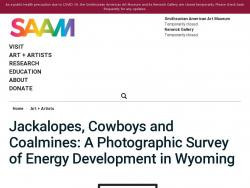Molly Chester's collections
Columbus Day: Should this still be a thing?
<p>As the classroom rhyme goes, Christopher Columbus sailed the ocean blue in 1492 and discovered America. But there is more to the story of the explorer we celebrate with a federal holiday on the second Monday of every October. As historians have continued to learn and write more about the real life of Christopher Columbus, controversy has arisen over the validity of honoring the explorer as a hero.</p>
 Molly Chester
Molly Chester
5
The Wild West? APUSH
<p>The West has always held a special place in American culture. In 1893, Frederick Jackson Turner wrote what is known as the "frontier thesis," arguing that our sense of democracy and hard work has been shaped by experience of survival and growth along the frontier. More than a century later, Americans still idolize the cowboy image and are fascinated by the train robbers, saloons, and violence of the era. How accurate is our mental picture of the "Wild West"? What were the realities of life on the frontier in the late 19th and early 20th century? What was lost and what was gained as America closed out the frontier? Most importantly, why has the West continued to fascinate Americans and play such a prominent role in popular culture?</p><p>This learner resource includes essays, images, artifacts, and movies that deal with the concept of the American West. Essays? Students will want to read Turner's essay and answer the attached questions. Then, they will focus on choosing images and ideas to include in a movie trailer or poster advertisement that presents a more accurate image of turn of the century western life.</p>
 Molly Chester
Molly Chester
29
APUSH WWI Propaganda
<p><u></u>This student activity includes a variety of types of propaganda related to World War I. The United States government took great action when it came to World War I—they helped organize workers, recruit military members, and regulate the economy so that American could have a successful impact on the war. The Committee of Public Information formed by George Creel and other propaganda-producers used advertising techniques from businesses to make appeals to the average citizen and encourage them to make a difference. This assignment will ask you to connect each piece of propaganda to one of four major goals of the U.S. government during the war and to analyze a few specific pieces for author, audience, purpose, and even the medium/form. </p><p>Essential questions include:</p><ul><li>What are the four main goals of the government during World War I?</li><li>Why and how did propaganda creators target specific audiences with their messages?</li><li>What are the effects of changing the medium or form of propaganda on how it might be received?</li></ul><p>Tags: World War I, WWI, selective service, draft, liberty bonds, propaganda, music, Uncle Sam, persuasive writing, cause effect</p>
 Molly Chester
Molly Chester
14



